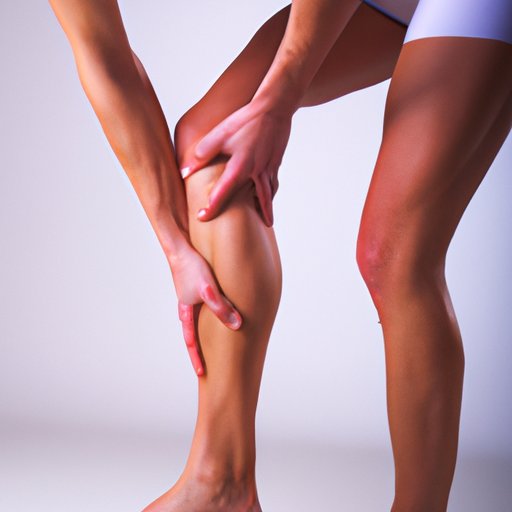
How to Stop Leg Cramps: Understanding the Causes and Remedies
Leg cramps are a common condition that affects people of all ages. They are usually brief and harmless, but they can be very painful and uncomfortable. Leg cramps occur when the muscles in the legs contract and tighten up, causing a spasm. There are several causes for leg cramps, including over-exertion, dehydration, nutrient deficiencies, and medical conditions. In this article, we will explore the different causes and remedies for leg cramps. You will learn stretching exercises and techniques, essential nutrients and their sources, natural remedies for muscle spasms, hydration and electrolyte balance, when to seek medical help, and more.
Understanding the Causes of Leg Cramps
Leg cramps can be caused by a variety of factors, including over-exertion, dehydration, nutrient deficiencies, and medical conditions. To prevent leg cramps, it is essential to understand the cause. For instance, over-exertion when exercising can lead to muscle fatigue and cramping. Dehydration can cause an electrolyte imbalance, which can result in muscle spasms. Nutrient deficiencies, such as a lack of calcium and magnesium, can also lead to leg cramps. Medical conditions such as diabetes and thyroid problems can also cause muscle cramps. To avoid these causes, it is necessary to stay hydrated, warm up before exercising, and eat a balanced diet.
Stretching Exercises and Techniques
Stretching can help to prevent leg cramps and alleviate pain when they occur. Some of the most effective stretching exercises include calf stretches, hamstring stretches, and quadriceps stretches. To properly execute these exercises, sit on the floor with one leg straight and the other leg bent. The bent knee should be positioned on top of the straight leg. Reach for the toes of the straight leg, and hold the stretch for 10-15 seconds. Repeat with the other leg. These stretches should be done daily, especially before and after exercising.
Essential Nutrients and their Sources
Essential nutrients play a significant role in preventing leg cramps. Calcium, magnesium, potassium, and sodium are all crucial for healthy muscle function. Eating a balanced diet that includes fruits, vegetables, lean protein, and whole grains can help reduce the risk of cramps. There are many foods rich in these essential nutrients, including bananas, spinach, almonds, avocados, and whole grains. By incorporating these foods into your diet, you can obtain the necessary nutrients to prevent leg cramps.
Natural Remedies for Muscle Spasms
Natural remedies can also be effective in preventing muscle spasms. Some of these remedies include herbs, oils, and teas. For example, peppermint oil can be massaged onto the affected area to relieve pain and discomfort. Ginger tea can aid in reducing inflammation and muscle soreness. Epsom salt baths can help replenish magnesium levels in the body, which can alleviate muscle cramps. These natural remedies provide a useful and cost-effective solution to leg cramps.
Hydration and Electrolyte Balance
Adequate hydration and maintaining proper electrolyte balance is critical in preventing leg cramps. Drinking plenty of water throughout the day and maintaining a balanced diet is crucial. When exercising, it is essential to stay hydrated and replenish electrolytes. Pedialyte and sports drinks can be used after exercise to replenish electrolytes and help prevent leg cramps.
When to Seek Medical Help
In specific cases, seeking medical help may be necessary. If you experience prolonged or severe cramping or muscle weakness, it may be a sign of a more serious condition, such as peripheral artery disease or muscle damage. You should also seek medical attention if you have cramps combined with swelling and redness. Your doctor may order blood tests or imaging tests to diagnose and treat the cause of your leg cramps.
Conclusion
Leg cramps can be painful and uncomfortable, but there are many ways to prevent and treat them. Stretching exercises, essential nutrients, natural remedies, hydration, and electrolyte balance are all effective solutions for leg cramps. Always remember to seek medical help if necessary. By practicing these remedies and making a few lifestyle changes, you can alleviate the pain and discomfort caused by leg cramps.





